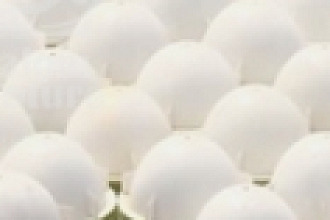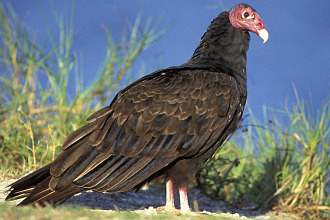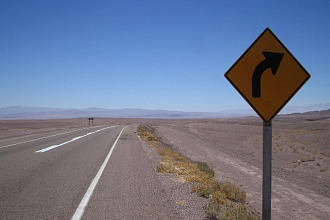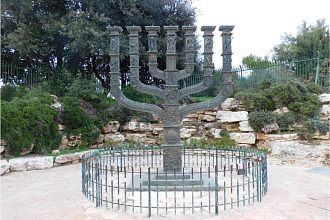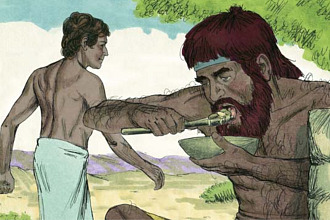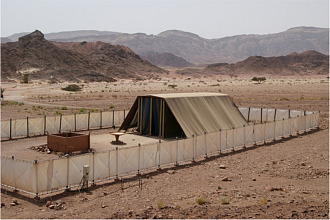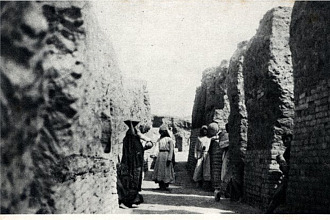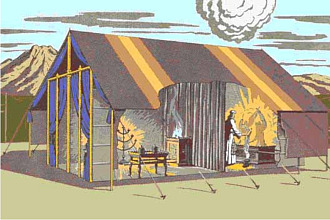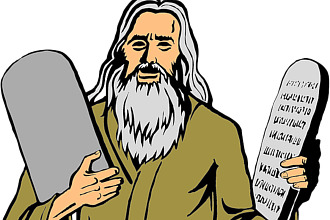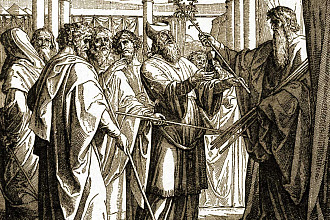Parasha for the Week: Vayeshev: Genesis 37:1 - 40:23.
Haftarah for the Week: Amos 2:6 - 3:8.
Brit Chadasha: Hebrews 7:24 – 26.
Overview
Yaakov settles in the land of Canaan. His son, Yosef, brings him critical reports about his brothers.
Yaakov makes Yosef a fine tunic of multi-colored woolen strips.
Yosef exacerbates his brothers’ hatred by recounting prophetic dreams of sheaves of wheat bowing to his sheaf, and of the sun, moon and stars bowing to him, signifying that all his family will appoint him king.
The brothers indict Yosef and resolve to execute him. When Yosef comes to Shechem, the brothers relent and decide, at Reuven’s instigation, to throw him into a pit instead.
Reuven’s intent was to save Yosef. Yehuda persuades the brothers to take Yosef out of the pit and sell him to a caravan of passing Ishmaelites. Reuven returns to find the pit empty and rends his clothes. The brothers soak Yosef’s tunic in goat’s blood and show it to Yaakov, who assumes that Yosef has been devoured by a wild beast. Yaakov is inconsolable. Meanwhile, in Egypt, Yosef has been sold to Potiphar, Pharaoh’s Chamberlain of the Butchers.
In the Parasha’s sub-plot, Yehuda’s son, Er, dies as punishment for preventing his wife Tamar from becoming pregnant. Onan, Yehuda’s second son, then weds Tamar by levirate marriage. He too is punished in similar circumstances.
When Yehuda’s wife dies, Tamar resolves to have children through Yehuda, as this union will find the Davidic line culminating in the Mashiach (Yeshua was a descendant of Yehuda and Tamar). Meanwhile, Yosef rises to power in the house of his Egyptian master.
His extreme beauty attracts the unwanted advances of his master’s wife. Enraged by his rejection, she accuses Yosef of attempting to seduce her, and he is imprisoned. In prison, Yosef successfully predicts the outcome of the dream of Pharaoh’s wine steward, who is reinstated, and the dream of Pharaoh’s baker who is hanged.
Reuven tried to save Yosef
The Torah states: “And one brother said to another, behold this dreamer (Joseph) is coming” (Genesis 37:19). They were concerned that Joseph was trying to usurp the birthright from Reuven as expressed in Joseph’s dreams of the family bowing down to him.
The Torah states: “And Reuven heard and he saved him from their hands. And he said, ‘Let us not hit a mortal blow.’ And Reuven said to them, ‘Do not shed blood’“ (Genesis 37:21-22).
Rabbi Bahya comments that Reuven wanted to save his brother, Joseph. If he were to have said, “Let us not hit him,” he would have shown his brothers that his motivation was compassion for Joseph and they would not have listened to him. Therefore, Reuven added the word nefesh, “life” or “soul.” Reuven was saying, “I don’t want you to commit murder regardless of who the person is.” Similarly, in verse 22 he said to them, “Do not shed blood.” He did not say “his blood.” This implied, “I, too, hate him and it is not his blood that I am concerned about. Rather, I am concerned that you should not become murderers.”
From this observation of Rabbi Bachya, we see a very important principle when it comes to influencing someone. The focus of your arguments should be on points that the listener will accept even though your own focus might center on a different aspect of the situation. Reuven’s goal was to prevent the shedding of blood. He wanted to save Joseph. If he would have told them to have mercy on Joseph, they would have disregarded his pleas. He wisely showed them that their behavior was not in their own best interests since they would lower themselves by their actions.
Rabbi Kalman Packouz affirms: “a person will only do what he or she perceives is in his or her best interest. Therefore, it is always more effective to present ideas and suggestions from that point of view.”
Yosef and Mashiach
According to the Jewish tradition, this text is “One of the most difficult portions in the Torah to understand is the episode of Yosef and his brothers.” They try to understand it by the commentaries of the sages of Israel, but if they don’t see the connection of this text with the story of Yeshua, it will always be difficult to understand this story.
According to the Jewish tradition, “Each of the 12 sons of Yaakov possessed specific traits and talents that would be required by their descendants, the 12 tribes, in order for each tribe to fulfill its unique role in the building of the Jewish people. Each son expressed a different facet of their father Yaakov’s personality. Yaakov himself embodied the entire Jewish people, Yisrael, in microcosm.
Yosef, unlike his brothers, was a complete replica of his father Yaakov, fashioned in his physical and spiritual likeness. Yosef was Yaakov’s firstborn in thought, for Yaakov had intended to marry Rachel first and Yosef was Rachel’s firstborn. As Yaakov’s likeness, Yosef also possessed all the various traits that would define the entire Jewish people.
Yosef’s role was to provide the other tribes with the means to develop their individual roles. Thus Yosef preceded his brothers to Egypt and laid the foundation for his brothers’ eventual sojourn there. Yosef’s descendant, Yehoshua, conquered the land that the tribes then developed into the Jewish commonwealth. And at the end of time, Mashiach ben Yosef will prepare the way for Mashiach ben David” (Rabbi Zev Leff).
Then for the Jewish tradition there are two Messiah: the Mashiach ben Yosef (son of Joseph) and the Mashiach ben David (son of David). The Mashiach ben Yosef is a suffering Messiah (Isaiah 53), and the Mashiach ben David is a glorious Messiah (Daniel 7:13-14). As believer in Yeshua, we have understood that the two facets of the Mashiach are in fact gathered in only one Mashiach who came once as the Mashiach ben Yosef and who will come back for a second time as the Mashiach ben David.
Yeshua was the Mashiach ben Yosef, like Yosef the son of Yaakov he was sent by his father to feed his brothers, but they did not accept him. They sold him to the Roman soldiers for 30 coins. He suffered a lot, and through his suffering he saved his people.
Yeshua will be one day the Mashiach ben David, when he will come back from heaven where he went up on the day of the ascension. His coming back is described in Daniel in these words: “As I watched in the night visions, I saw one like a human being coming with the clouds of heaven. And he came to the Ancient One and was presented before him. To him was given dominion and glory and kingship that all peoples, nations, and languages should serve him. His dominion is an everlasting dominion that shall not pass away, and his kingship is one that shall never be destroyed” (Dan. 7:13-14).
A sign for Jacob’s Descendants
The narratives of Genesis are more than stories. The vicissitudes of the forefathers are far more than ancient tales; they are spiritual realities pregnant with meaning. They form the woof and warp of G-d’s people history. In order to understand the significance of the teachings in Genesis generally, and in this Torah portion specifically, we must introduce the concept of ma’aseh avot siman l’banim, “the actions of the forefathers serve as a sign for their descendants.” Put another way, history repeats itself, or, in theological terms, G-d’s people history is G-d’s people destiny. Rabbi Shaul reminds us that “All Scripture is G-d-breathed and is useful for teaching, rebuking, correcting and training in righteousness” (2 Tim 3:16).
Two Types of Dreams
The Sages tell us that there are two distinct types of dreams: those generated by one’s own thoughts and ideas; and those linked to prophecy. When Joseph related his dreams concerning his brothers’ sheaves of grain bowing to him—and later the dream of the sun, moon and stars bowing to him—he did so because he viewed them as prophetic mandates. The brothers, however, saw them as further proof that thoughts of domination preoccupied his mind.
Overcome the Temptation
Rabbi Yissocher Frand reminds us that the Talmud relates that a certain Roman matron asked Rav Yosi the following question: How can it be that a 17-year-old boy, who has been away from his family and all family influence, immersed in the sensuality of Egyptian society — how was it possible for him to be able to withstand this temptation? The Talmud [Sotah 36b] elaborates that it was that vision of his father in the window telling him “Yosef, in the future your brethren will want to inscribe your name among the stones of the Ephod worn by the Kohen Gadol, together with the names of the other tribes. Do you want to do something that will cause your name to be blotted out from amidst the names of my other sons? Do you want to have the title a shepherd of prostitutes?” When Yosef heard that, he backed off. This fear of losing his connection to his father is what held him back from sinning.
By natural instinct and logic, as the Roman matron asked Rav Yosi, this temptation required super human powers for a 17-year-old young man to resist. However, it was the image of Yaakov — how can I do this to my father? — that held Yosef back.
Rav Yaakov Kamenetsky makes two interesting observations. This image only works if the father has “currency” with his son. If the father does not have “currency” with the son, his appearance in the window is not going to save the day. Just as there is a concept [Chagiga 15b] that “If a teacher appears (in stature) as an Angel of G-d, then one seeks the words of Torah from his mouth,” so too it is the case that if a FATHER appears (in stature) to his children like an Angel of G-d, then and only then will be able to have influence on them. We as parents need to act in a manner that will cause it to be simply impossible for our children to contemplate “how could I ever let my father down and do this to him?”
This is one of the foundations of child rearing —that a father needs to gain respect and prestige in the eyes of his children. He has to maintain credibility and inspire love and admiration, such that one’s children would never contemplate harming their father’s reputation or expectations of them.
There was once a Jew who lived in Baltimore, who came there in the 1920s. For many years, he was the chairman of the Board of a Rabbinical College. He was a student of Rav Leibowtiz, the Rosh HaYehsiva. When the student came to Baltimore in the 1920s, it was almost impossible to make a living without working on Shabbat. Like so many people of his generation, he faced the great test of earning a living that “If you do not come on Saturday, do not bother coming on Monday either.” He relates that he was on the verge of taking such a job that required a six-day workweek. However, he was stopped by the image of his Rebbe, Rav Leibowitz. He could not do it to his Rebbe. That literally held him back and he remained a Sabbath observant and honest Jew for all of his 101 years.
Rabbi Yissocher Frand says that rather than Yaakov Avinu appearing in the window as by Yosef haTzadik, Rav Leibowitz appeared in the window. This story is telling us that we need to have that type of relationship with our children, such that they love and respect us and want to remain attached to us, thereby never doing anything that puts that relationship at risk.
Haftarah: Amos 2:6 - 3:8
We continue to read in this parasha the story of Yaakov and specially the painful experience of Yosef who was sold by his brothers for some silver coins (Genesis 37:27-28).
This text of Amos could be linked to the selling of Yosef for some silver coins “Thus says the L-rd: For three transgressions of Israel, and for four, I will not revoke the punishment; because they sell the righteous for silver, and the needy for a pair of sandals” (Amos 2:6).
The parasha describes the beginning of the installation of the Israelites in Egypt “Now Yosef was taken down to Egypt, and Potiphar, an officer of Pharaoh, the captain of the guard, an Egyptian, bought him from the Ishmaelites who had brought him down there” (Gen. 39:1).
The mention of Egypt in our Haftara is also a link with the Parasha where Yosef is sold and then will see Israel to be installed in Egypt; then after slavery they will have to leave. “Also I brought you up out of the land of Egypt, and led you forty years in the wilderness, to possess the land of the Amorite. And I raised up some of your children to be prophets and some of your youths to be nazirites. Is it not indeed so, O people of Israel? says the L-rd” (Amos 2:10-11).
It is not easy to be G-d’s people; in the Parasha, it gives them more responsibilities and from time to time Israel did not use their privilege properly. That’s why the L-rd has said to them: “Hear this word that the L-rd has spoken against you, O people of Israel, against the whole family that I brought up out of the land of Egypt: You only have I known of all the families of the earth; therefore I will punish you for all your iniquities” (Amos 3:1-2).
Brit HaChadasha: Hebrews 7:24 – 26
Joseph is a special figure in the biblical and Jewish traditions. In the Bible, especially in the book of Genesis he is a very important character. Fourteen chapters of the book are dedicated to Joseph and his story. Exactly the same number of chapters dedicated to Abraham the “father of believers.” In the Jewish tradition, he is called “Yosef Hatsadik” that means “Joseph the righteous.” It is true that Joseph is one of the rare biblical characters who has not sinned (the Bible does not mention his sins). That is why in the Jewish tradition Joseph becomes the “father” or “type” of the Messiah. And one of the titles of the Messiah is “Son of Joseph” (Sukkah 52a and 52b).
In the Jewish tradition, the Messiah who will die, is called the Mashiach-ben-Yosef, the Son-of-Yosef. Not because he will be a descendent of Yosef, but because he will be like Yosef. A strange parallel exists between Yosef and Yeshua who was “Son-of Yosef.”
The parallel is clear: Yosef was sold for a few coins (Gen 37:28); Yeshua was sold for a few coins (Matt 26:15). However, in the story of Yeshua, it is not Yehudah who saves him, but he sold him to the Sanhedrin and the Romans.
Yosef went to feed his brothers, as Yeshua came to feed (spiritually) his brothers (the Jewish people)
Yosef was rejected and sold to a cousin people Ishmaelites.
Yeshua was rejected and sold to the Romans. According to the Bible, Herod, was an Edomite, and according to the Jewish tradition, the ancestor (maybe spiritually) of the Roman was Esau, the Edomite. The three monotheist religions are represented by Jacob (Israel), Ishmael (Islam) and Esau (Messiahians).
Yosef suffered very much, and was imprisoned.
Yeshua suffered very much and died.
But Yosef was saved, he got out from his prison and saved his people from death (famine).
Yeshua was saved (resurrected) and also saved his people. “G-d exalted him [Yeshua] to his own right hand as Prince and Savior that he might give repentance and forgiveness of sins to Israel” (Acts 5:31).
When Yosef revealed himself to his brother in Egypt, “I am your brother Joseph” (Gen 45:4), they accepted him; they accepted his leadership and lived with him for all the rest of the book.
This part of the parallel is not yet fulfilled. At the end of history, Yeshua will reveal himself to the people of Israel, they will accept him and they will accept his leadership (Hosea 3:4-5).
In the Brit Hachadasha we have this reminiscence and link between the Mashiach and Joseph. In the genealogy of Yeshua, we learn that Yeshua is the son of Yoseph (Luke 3:23). When there was discussion about him in the crowd, he was presented as the son of Yoseph (John 6:42). And when he was introduced to the first disciples as the Messiah, he was introduced as the son of Joseph, as though the title “Son of Joseph” was more important than “Son of David.” It is said “Philip found Nathanael and told him, ‘We have found the one Moses wrote about in the Law, and about whom the prophets also wrote — Yeshua of Nazareth, the son of Joseph’” (John 1:45).
As Yoseph was called “Yoseph hatsadik” (the righteous), when we read the Brit Hachadasha we discover that Yeshua is also the tsadik par excellence. Yochanan called him Yeshua Hamashiach Hatsadik (the righteous) (1 John 2:1). Righteous means that Yeshua is the perfect intercessor between man and G-d. He is at the right hand of G-d pleading in our favor on behalf of each one of us. Because Yeshua is the righteous, his ministry is much more superior to the ministry of any other high priest. The book of Hebrews says “but because Yeshua lives forever, he has a permanent priesthood. Therefore he is able to save completely those who come to G-d through him, because he always lives to intercede for them. Such a high priest meets our need — one who is holy, blameless, pure, set apart from sinners, exalted above the heavens” (Heb. 7:24-6). Yeshua lives; he is officiating in the heavenly sanctuary, and he performs a unique ministry of intercession because he is HOLY, BLAMELESS, and PURE; he is HaTsadik, “The Righteous.”



